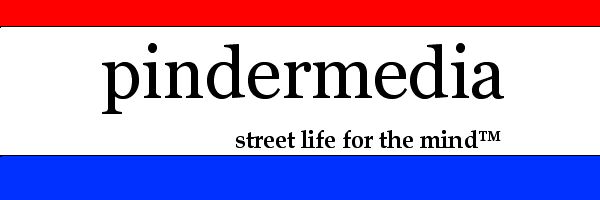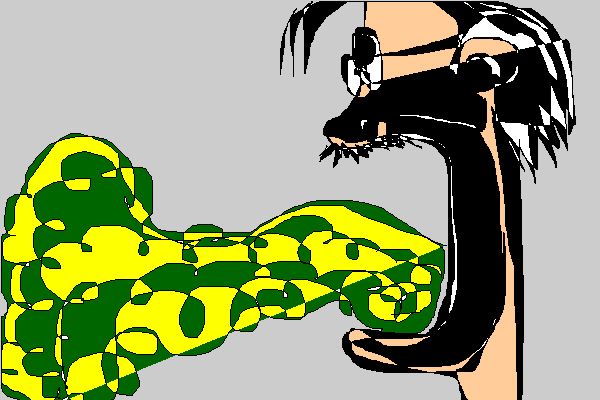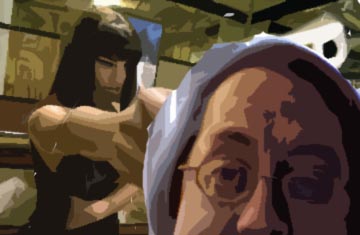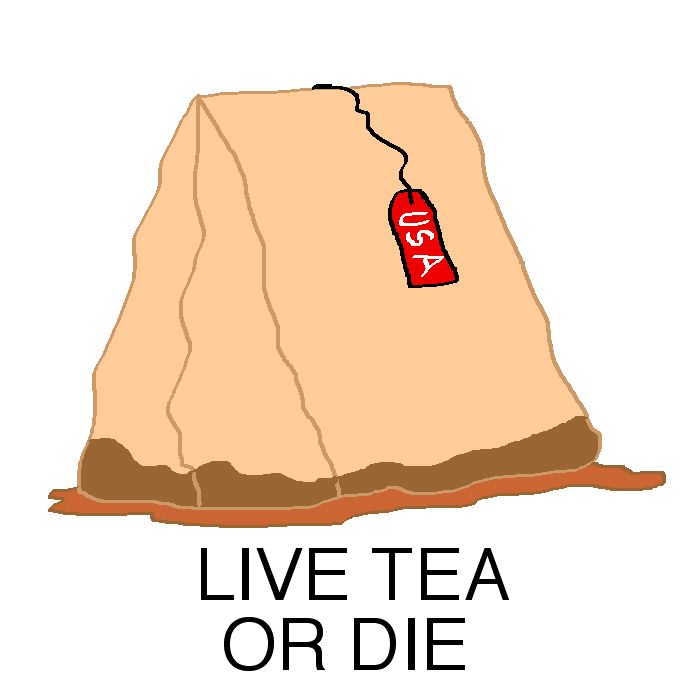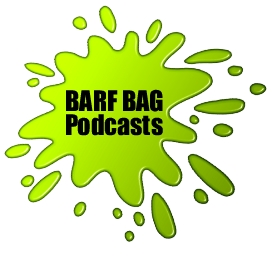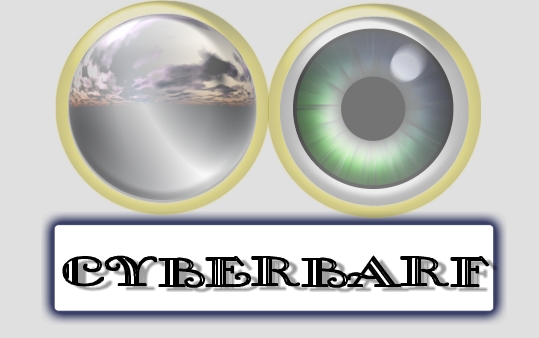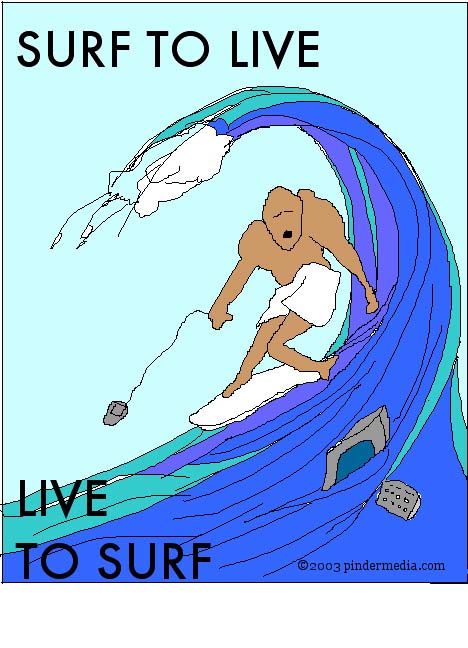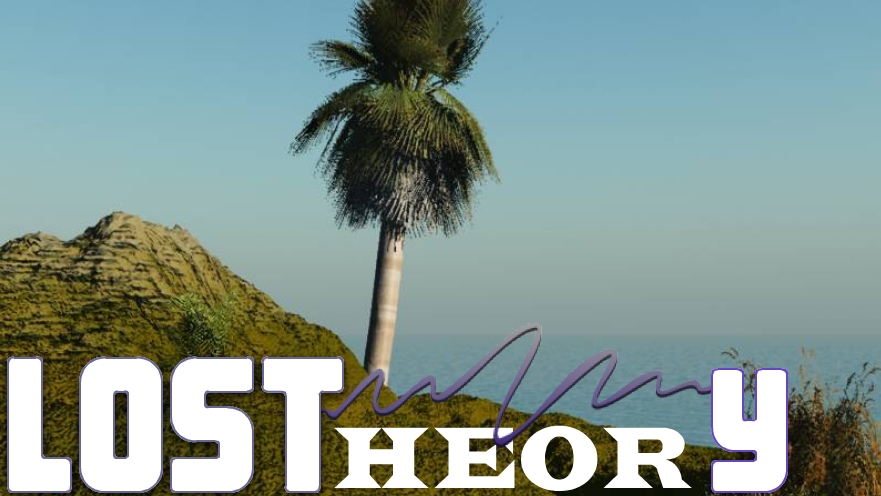|
AUGUST, 2012 ANNIVERSARY EDITION |
|
cyberbarf.com EXAMINE THE NET WAY OF LIFE IN THIS ISSUE: A LOOK BACK . . . . . . AND FORWARD
THANK YOUR FOR YOUR CONTINUED SUPPORT. CYBERBARF |
NO ONE LITERALLY PUT A GUN TO MY HEAD TO CREATE THIS WEB SITE, CYBERBARF.COM. NO IT WAS GOOD OLD FASHION AMERICAN PEER PRESSURE AND A HOBBYIST NEED TO FIND A CREATIVE OUTLET IN THIS NEW DIGITAL AGE. THAT WAS ELEVEN YEARS AGO. |
 |
|
cyberbarf EXAMINE THE NET WAY OF LIFE |
|
SUMMER IS FLEETING! TIME TO CHECK OUT! CYBERBARF T-SHIRTS, MUGS & MORE THANK YOU FOR YOUR SUPPORT! |
|
cyberbarf A LOOK BACK . . . ESSAY As I put in the yellow labeled CD into the old iMac, the drumbeat of Off Broadway's “Bad Indication” (1998) riffs through the speakers, to the lyric “if the world revolved around you . . . try to crash your party, boy. . .” I am reminded of the sad initiation of our late Tech Guru Rocky who told me in early 2001 that I had to get my zine, the Real News, on the web. The zine, which started in college to keep my friends informed with what was happening on and off campus, the (mis)adventures, road trips and a cynical view of the news of the world, was getting unwieldy to continue to mail to a list of addressees slowly get lost in faded laundry cycles. Not to be bullied into some technology nightmare, I took my time. But in typical overboard fashion, an automatic transition from paper to Dreamweaver pages for one zine site turned into a three web site conglomerate. The plan seemed to be ambitiously simple back then: one site to continue the Real News tradition (skirealnews.com), one site to comment on the wildfire of the implications of the Internet transformation (cyberbarf.com), and one other site to potentially showcase other interests like art, animation, comics or whatever was cheaper than therapy (pindermedia.com). It was tough to hang on to the enthusiasm of launching three web sites in a year, and then to update content on a regular basis because the mantra back in the day was “content is king,” and it had to be updated often in order to hold an audience. No one realized at the time that a billion other people had the same idea; so every web page was merely a blade of crash in the wilderness. In order to stay in time with the wired press of the time, I decided quickly that cyberbarf.com would be limited to a monthly offering. It would be technology centered commentary on the new culture that appeared to be sweeping up one industry after another. It seemed feasible at the time since I had learned early to multitask in college, working at the radio station, doing sports broadcasts, working at the campus paper, drawing editorial cartoons and on the side being a full time student. Well, once in every full blue moon a good idea bears fruit. What does that mean? Instead of turning my head around in a spray of neuro-sparks, I found (like millions of others) a place to write, draw, create, vent and produce something tangible and different from the normal daily work grind. It is also good to set personal goals. It is rewarding to at least meet some of those goals. So I started the sites with the naive expectation of neither fame or fortune, just personal satisfaction. In the first issue (page) of this site, I wrote: We are the communication descendants of Gutenberg. We add to the craft of wordsmanship as each generation adds volumes to the printed word. As revolutionary as tacking a printed list of demands on the church door, individuals are now empowered with an electronic printing press; the internet. Telecommunications access through universal telephone lines gave individuals the distribution channel to reach others effectively and quickly. The HTML editors and web design programs have made it easier for non-technical persons the ability and tools to create their own content. The cost of creating, publishing and accessing content on the web is at a low-cost breakpoint which has established the fertile ground for the explosive crops of individual web pages uploaded each day. This site is one of those pages. In the beginning, the purpose is to create a personal ejournal of net observations and essays on this new electronic printing revolution, where individuals are empowered with the tools to make their ideas well known in the public space. We will also take a neo-journalistic view of how the Internet is changing perceptions, realities, and judgments. “Examine the Net Way of Life” is the mission statement. The purpose and mission statement of this monthly publication has not changed. It has taken a few detours along the way, like when Rocky tried to tell me that certain clever Internet games like NationStates were worth a ride but failed to keep my gnat like attention span. Also in the first issue, I made a few observations: There are three major areas under development: academic, commercial and personal. Academic is the original core content of cooperative knowledge and research tools. Commercial is the use of the network to facilitate commerce-- marketing, contracting, sales, and interchange of information. Personal is the individual’s production of a piece of their life, ideas, interests, hobbies or creativity into the public forum. Successful commercial applications tag behind the net’s personal element. The major uses for individuals clearly could be defined in a limited pattern: search engine use for topics (business or personal interest), financial stock tracking, on-line brokerage, news portals, email and chat rooms through ISPs like AOL or Earthlink, and research. What do these subjects have in common? Personal interest. Personal interest in your own portfolio, your own news stations, your own friends to email, or your own research tools to complete your daily projects. Personal interest is the driving force behind the exponential use of the Internet It was the foundation of the origins of the net; it remains the foundation today. In essence, the foundation of the digital world has not really changed since its inception. Things have dropped a line or two in priorities in the past eleven years. The commercial elements of Internet use clearly started the firestorm of expansion for the web and the support industries. But this area has leveled off as most people now view the commercial aspects of the net like any of the dozen of cookie-cutter strip shopping centers in their home towns. Access to the Internet is viewed as a utility now, like turning on a light switch. The academic aspect of expansion of available knowledge and research has helped in long distance coordination on projects. But it has spawned a student “cut and paste” mentality in doing homework and reports instead of reading source materials, textbooks and applying personal knowledge to come to one's own conclusion. Many students think a library is a directory of computer files or a place where computer terminals reside in school. The broad Internet culture has had an inverse effect of creating a herd mentality of like-minded people congregating together to the social discord of opposing thoughts or positions. The idea of an unbiased search engine like a digital library card stack has morphed into giant paid search bias and subliminal advertising information brokers dominating the communications field. Personal uses have been the engine for the exponential expansion of the Internet which has spawned social media and smart phone addicts. Blogs, texting and social tweets now dominate interpersonal relationships. The individual has been the foundation for all the advancements in technology in the past decade. When we look back to the early years in cartoon form, it is noteworthy that same issues still dominate today's tech-culture. Is the Internet the new baby? Yes, and growing up expensively fast. The net hosts time bombs including terrorist plots and cyberattacks. The failure of e-voting continues to baffle officials. Operating software and applications continue to suffer from bloated program size. The big telecos are still trying to wire all services directly into your soul. The idea of free wireless hotspots is seeing retraction in coffee shops and cities due to the covering costs. Connection speeds will always be an issue until one can develop technology as fast as the human brain can process information. But the boom and bust cycle of technology and tech firms continues especially in new areas that can only be called weak business plan: fads. Most mobile app developers don't make back their research costs because the market is the rare boom to the normal bust. Spam and spyware are persistent problems and data mining privacy concerns are growing public backlash. Peer to peer file transfer sites have not lessened the copyright battles and now, the industry titans are in expensive clashes of computer software and design patents to control the future of smart phone technology. And finally, there was a Big Brother concern over government silently eavesdropping on one's digital life; the hue and cry that ISPs routinely disgorge information to agencies without express permission is becoming a hot political topic. So after eleven years, it is time to hit the pause button, at least momentarily. In 2001, offices still used typewriters to fill in forms; the U.S. Mail to send correspondence or overnight delivery services for urgent communications; people got their daily news from the local printed paper and the radio; you still could take photographs with 35mm film cameras; and mobile phones were pay phones in public places that were fed dimes and quarters to make calls. A lot has changed in the quilted fabric of American life. cyberbarf . . . AND FORWARD FUTURESPEAK What do the futurists think will happen next? In a chilling repercussion of everything personal being available in the cloud, the idea of Thought Police forcing the will of vocal minority or elitist state is a grim possibility. As the lesson from Animal Farm, all men are created equal, but some are more equal than others. As the United States faded from a manufacturing superpower to a service economy with a lower standard of living, easy credit and mountains of debt continued to fuel the continued expansion of the consumer economy. But now, in a deep recession, at a terrible cost. Government officials began paying themselves more than the private sector, and then added on massive pensions 20 times more than a person could receive in Social Security retirement benefits. Slowly, state and local government budgets have been consumed by these employee benefit obligations to the point where many states have borrowed billions of dollars just to meet payrolls and long delayed vendor payments. As the media focus is on the financial plight of Greece, Spain and Italy - - - the same is happening in the United States. The Internet should have been the transparency technology to give the people an advanced warning on the trouble ahead. But the Internet as a powerful productivity research tool has been sidetracked into an unproductive means of diversion, entertainment and personal gratification. There are some organizations who see personal liberties being eroded by government actions in trying to police or regulate the Internet But most people don't realize that their constitutional rights are being transformed by overzealous politicians into unconstitutional privileges to be determined by the career political ruling class. Once a basic freedom is lost, it is almost impossible to regain. The system enforces the change in freedoms upon the people. If one looks back at the Arab Spring, where several Middle Eastern countries with educated but highly unemployed populations, took to the Internet and social media to organize large protests against the dictators running their countries. They demanded freedoms. They wanted solutions to their economic hard times. They wanted the freedom to create their own opportunities. They wanted real elections so they could have real representation, not rubber stamped bureaucrats from the military or ruling party. The wired electorate made quiet a statement until the bloodshed backlash; in order to even re-gain the status quo, the protesters had to battle in the streets. Life is not a video game, it is life and death struggles. If the web as a baby in 2000, the Internet has grown into a rebellious, needy, self-absorbed teen. Kids are looking to get their first electronics (iPods, iTouch, electronic game players) before pre-school. By the time a child gets into elementary school, many have cell phones. By the time they go to middle school, the kids have their own social media accounts (Twitter or facebook). Parents shrug thinking that is the way children communicate today. Instead of personal one-on-one activities, more and more social engagements are virtual. There will be studies on whether this virtual childhoods will interfere with the development of basic interpersonal relationship skills that are needed in finding a job, interacting with customers or solving problems in collective projects. More and more application developers are selling software that makes a person think less on their own. Students are now being taught where to find information and not how to find the authoritative information. Instead of opening a curtain, a tap on an app icon to see what the weather is outside. It is doubtful that many people can unfold a printed map and navigate themselves from point A to point B. They rely so heavily on GPS navigation devices that any inherent sense of direction becomes dormant. Such a point and click end result only leaves a void in the actual learning process: if one uses a finger to trace the route on an actual map, one could see the names of the towns in the path, or other areas of interest noted on the map. The same is true in history questions. One can google the answer for the question who led the troops crossing the Delaware (George Washington) but lost to the student is the reason WHY the army was crossing the river in the middle of winter (as contained in the paragraphs in a textbook describing the crossing). It is not that children and adults are dumber than their ancestors. It is that there is a less desire to gather more than the bare minimum of information. The world's knowledge base has never been greater, but an individual's comprehension of it is not keeping up. In Colonial America, there was a higher literary rate than currently in the USA. Being able to read and write was a requirement to be able to get out of a life of unskilled labor towards being a craftsman or a professional. Today, college educated recent graduates have a higher unemployment rate than displaced workers. Social media has transformed how many people think of themselves. It seems that everyone is “over sharing” their personal information in almost in an open diary way. What you have done that minute, what you like, what you plan on doing, what your friends say - - - is somehow tied to a school clique notion of trying to be “liked” by the in-crowd. Having strangers peek into your circle of friends comments is in some respects creepy. But even worse, the social media operators are taking all your personal information like milking cows and selling the information to marketing and advertising firms. Data mining is the seedy underbelly of the social media business. Nothing in life is free. People are being transformed into a new commodity: information. And once that personal information is out in the network, its privacy is lost forever. Some people are really naive about their postings. Many people do not realize that potential employers will search the web for an applicant's postings to get some insight on a job candidate. Drunken mid-week party pictures on your facebook page will not create a favorable reaction to a human resources director who is looking for a qualified, hard working and responsible individual. And once your personal data has been data mined, this information can be compiled into target specific advertising and spam. How often have you gone to a web retailer's site, and a day later you get several emails from that retailer in your in-box? Spyware, cookies and malware are taken now as mere potholes in the information highway. But those loopholes will continue to be exploited by others. In a weak service economy with high unemployment and a disillusioned work class, there may be a shift to what people believe is “more valuable” than objects in the past. The growing trend is that more people value information (raw data to manipulated data) because that is the only feasible means to scrape out a living. Instead of a pick and a hoe making furrows to grow potatoes in a field, people are picking and gathering information to create apps to sell in web stores in the hope of eeking out a payday down the road. In some respects, the large supertech corporate research and development departments are receding towards an early Industrial Revolution cottage industry approach to information technology. The interconnected global economy more fragile than ever with unpayable debts and social welfare class entitlement politics. We may return to the pre-Industrial revolution cottage industries of independent individual risk takers meeting a niche need in their local community (de-globalization as the solution to world recession). It's an App, App, App World out there. The limited feature freeware tease in order to have people impulse buy the full app for a few dollars is a hard business model to earn a living from; many developers spend a year getting their ideas working on a platform to find that the platform has changed, users interests have changed, or twenty other people had the same idea and their apps are also for sale. Companies are forcing individuals to give them their data. Under the guise of the ease and instant access to “all” your information and files, the Cloud computing and the battle over one's own information is going to be the conflict for the next decade. In simple terms, Cloud computing is giving a stranger your back up files to hold on its servers. You pay the Cloud service provider a fee to hold your information. However, in some contracts, these service providers want to own, use or manipulate your data. But who really reads the fine print, certainly not the naive facebook users. The cloud universe is another means of “contractually” data mining one's own customers to feed the information commodity assembly line. The genie is out of the bottle on corking access to information. People are unknowingly being farmed with each keystroke in the Internet daily lives. On the other hand, people who are creating content for web distribution are still caught in the cross hairs of the illogic of web users who still believe that free access to the Internet means that everything on the Internet should be free for the taking. It is an absurd idea but it continues to gain traction with the news and information aggregators who take other people's work and slap it on their pages for advertising views. Creative rights in new culture of free web content will be a sore subject for years to come. There are a few early adopters who have struggled nurturing their hobby interests into personal content expressions into web careers. A person creating a daily or weekly podcast on their favorite thing (games, technology, computers) who finds a following can slowly turn that fan base into a web cast, video show, books, appearances and a career. The independent risk takers are often rewarded for their years of non-monetized content production until they are noticed by a bigger fish in the content stream. These new Content creators have embraced and changed the distribution platform of the web. YouTube has turned from an amateur video upload parlor to designated and subscriptions channels (a kin to a growing cable network system) The new channels to distribute the New Content (web shows, podcasts, YouTube channels, video game boxes, interactive television streaming non-big media shows) has taken traction. And as a result, web show hosts have the demographics to be courted by traditional media to bridge the traditional cable show arena and their niche web programs. Older media players are going to continue to struggle to keep the hearts and minds of their viewers. People are more easily entertained by the dumb crash videos on YouTube than watching a prime time network show. Some die hards would rather get the big budget movie experience in their combat video game than going out to the theater. Game developers have caught on to this trend by putting in high quality animation cut sequences in complex game stories. And the game box controllers are also getting into the digital distribution area: X-Box and others are now offering streaming services of non-game content like television shows and movies. The new means of content distribution will change rapidly in the near future. People will leave the tether of the cable wire to be able to “program” their own personal entertainment channel by grabbing shows, games, digital books and magazines through a hub to their smart phone or tablet device. The question will be who will be the gatekeepers, if any, who will direct the future of information consumption. One of my long held thesis was that everything that happened on the TV Show MAX HEADROOM has come true. If you look at the episode summaries, you may agree with my assessment. In a despotic world (20 Minutes in the Future), the information age has created a wide gulf between classes. Network news has mostly turned into entertainment. The latter is a sobering thought in modern America: we have more access to information than ever before, but the general public is less knowledgeable on current events than ever before in the nation's history. Many South American dictators found out that if they controlled the media, they could control their people. Likewise, if the people don't care about the news or what their government is doing (to them), leaders can control their people like herding sheep. And that is a persistent danger in a democracy: apathy. People have become more apathetic to local and national news because they divide their time more towards their personal interests. So the future is both bright and grim. The dichotomy is apparent from the promise and the reality of the Internet age.
cyberbarf AHEAD GOING FORWARD
In the years past, we have had features such as Real News Komix, Bends & Trends, Brain Splatter, Cybersafari and the popular Whether Report. We have concluded this year two comic series, cyberbarf and Murmurs and we had contemplated featuring another series. However, it is an election year and political commentary and time constraints may put off starting another venture in the near future. We still may have an occasional podcast, the twitter 140 character short story Barferature and of course, the tech-centric editorial cartoons of iToons. Since this is a secondary endeavor, we have not have commentary features on this web site. It takes a full time person to monitor comment posts for flame wars to trolls. We don't have the time and energy to play those type of cyber-games. So we will strive to maintain and continue our old school publication approach of digital publishing. As another hot Midwest summer will broil to an end, and more time constraints come into play, we still plan to hold true to the mission statement of creating a monthly tech culture zine. Many readers have been along for the ride since the beginning. We thank you for your support. For new readers, welcome. Dabble in the archives if you so choose, with pre-apologies for any broken links from server transfer to server upgrade. |
|
THE PINDERMEDIA STORE IS FULL OF FUN T-SHIRTS CLOTHES, HATS AND OTHER ITEMS . FUN . . . . VALUE . . .. FUN . . . . VALUE! GO FOR IT!
THE POLITICAL SEASON IS HERE! NEW T-SHIRTS ON SALE!
SUPPORT cyberbarf VISIT THE CYBERBARF STORE! Prices may vary depending on sales, allotments, inventory. |
|
cyberbarf THE WHETHER REPORT |
cyberbarf STATUS |
| Question: Whether Apple will buy a social network company such as Twitter to bolster its mobile platform? |
* Educated Guess * Possible * Probable * Beyond a Reasonable Doubt * Doubtful * Vapor Dream |
| Question: Whether tablet technology and hardware features will hit a wall in the next year? |
* Educated Guess * Possible * Probable * Beyond a Reasonable Doubt * Doubtful * Vapor Dream |
| Question: Whether Google's acquisition of Motorola's division will turn Google into a major manufacturer of its own Android smart phone and tablet devices? |
* Educated Guess * Possible * Probable * Beyond a Reasonable Doubt * Doubtful * Vapor Dream |
|
cyberbarf EXAMINE THE NET WAY OF LIFE |
Television has proven that people will look at anything rather than each other. Ann Landers |
|
cyberbarf
THE STEAM PUNK SPECIAL EDITION featured new Music from Chicago Ski & the (audio) Real News: (mp3/4:14 length)
EXAMINING THE NET WAY OF LIFE cyberbarf™ distributed by pindermedia.com, inc. |
|
SUMMER IS COMING FAST. SURF'S UP WITH THIS CLASSIC T-SHIRT!
FEATURING: THE REAL NEWS IMPACT EDITORIAL CARTOONS WRIGLEYVILLE WAR POLITICS ENDORPHIN RUSH THE DARK ABYSS RANDOM ELECTRONS SPECIALS
FEATURING: THE REAL NEWS ARCHIVES CARTOONS MADAME'S TEA HOUSE THE BAR EXPLORE THE CITY SCAPE UNDER CONSTRUCTION SURPRISES ESTORE SPECIALS
|
RERUNS HAVE RETURNED
TO CABLE TV.
NEW INSIGHTS.
NEW THEORIES.
Recaps
at
LOSTHEORY
cyberbarf
Distribution ©2001-2012 pindermedia.com, inc.
All Ski graphics, designs, cartoons and images copyrighted.
All Rights Reserved Worldwide.
